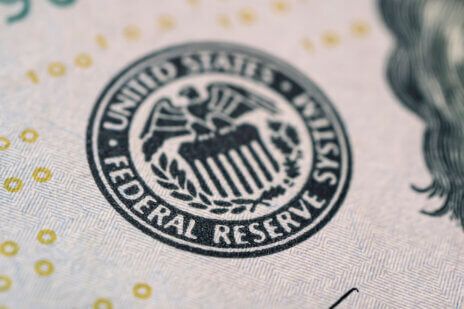
Portfolio Manager Brian Burrell explains how improved corporate governance and the advent of inflation mean investors should take a fresh look at Japan.
In the following discussion, Portfolio Manager Brian Burrell offers his takeaways on ongoing improvements to the Japan investment opportunity set following his recent visit. He offers insights into the macro, demographic and corporate governance evolution that is exciting new and former Japanese equities investors.
Q: Brian, are there any big-picture observations you want to share following your recent trip to Japan?
A: The trip included an investment conference and meetings with several companies. What was different about this trip was that it is the first in a very long time where there were a lot of new investors that we had never seen in the room before and many investors that we hadn’t seen in some time that were coming back to take a fresh look.
Investors have felt they didn’t really need to look at Japan even though it’s the largest country in MSCI’s international equity indices, because the country was basically flat in dollar terms for 30 years after its peak in 1989. Investors had done well by underweighting it. Over that period, it underperformed the MSCI EAFE Index by 260% — but since the market bottom in October of 2022, it’s up 45%, which is 2.0% ahead of the S&P 500 and drawing interest from a new generation of international investors. In February of this year, the Nikkei 225 Index finally passed its old high in yen terms.
The Nikkei Generated Investor Excitement in Early 2024 by Breaking Its 1989 High
Nikkei 225 Stock Index 1989–2024 (Yen)
Source: Bloomberg as of 3/29/2024
Q: What’s caused the big change?
A: The psychological effect of surpassing that previous high in the Nikkei is pretty powerful. People are beginning to believe in the Japan market again as a proper way to not only store value, but actually increase it. That’s a huge change in mindset, just as the return of inflation is a huge mindset change. Once that percolates into the actual behavior of people in Japan that will have vast consequences for spending and investment habits.
Secondly, with the end of zero or negative interest rates in Japan you have a more conducive environment for potential wage growth. You know, a little bit of inflation gives you an incentive to buy today rather than tomorrow and not to delay purchases because you believe that prices are going to go down. You actually have a better growth environment.
Q: You bring up a good point. We have recently seen many headlines talking about the death of deflation. Are they right?
A: The end of deflation is a huge development that I don’t think is fully appreciated, and you’re seeing it in real time as prices begin to go up.
The most pronounced sign recently was with wages. The Japanese go through this process every year that’s called the Shunto, which is where the unions and business leaders get together and have a negotiation about how much wages are going to increase. This rate sets a benchmark for employees’ annual wage increases. For a long time, those increases have been small since there’s been no inflation and it’s hard to argue for an increase.
However, this year the pay raise was the biggest in over 30 years, more than 5.5%. Wages are up; input prices are up; energy prices are up; and it’s feeding through to the cost of goods. The whole dynamic is shifting in a way that is beneficial for Japan to get out of this deflationary environment and create a virtuous circle.
A 5%+ hike allows for normal market mechanisms to start pushing price increases, and that has implications for growth rates, margin growth, and valuation levels. Again, these are all second order impacts, but important for investors as well as consumers.
Normal inflation has not been a feature of Japan for many years. There are some great companies, the KEYENCEs and Tokyo Electrons of the world, that compete globally, and can charge whatever value they bring in those foreign markets. But there are also a lot of great companies that make good products in Japan with more of a domestic focus that haven’t really been able to flourish in the way that they would have with a material presence outside of Japan. Now perhaps they can.
Japanese Government Bond (JGB) yields have not kept up with rising CPI in recent years, but now the historical negative real interest rates in Japan are turning positive and giving depositors a positive return.
JGB Yields Are Not Reflecting Inflation. Time for Equities?
Japan Government Bond 2-Year and 10-Year Yields vs. Japan CPI, 1989–2024
Source: Bloomberg JGB Data as of 5/31/2024, Japan Ministry of Internal Affairs and Communications CPI Data as of 2/29/2024
Q: Related to that, you were talking about how things still felt really cheap in Japan. Does the fact that things still feel cheap mean there’s still room for costs to go up, either prices or the yen itself?
A: Both a depressed currency and the deflationary years are factors. As a dollar spender, I found Japan was inexpensive. If you compare the quality of food, for example, in New York, London, or Paris with what you can get in Tokyo, Japan is head and shoulders above for the price versus the quality. Longer term, we expect the yen to strengthen and inflation to return to 2 to 3% a year, but at current levels, the Japanese market offers access to assets relatively inexpensively. Since 1990, the yen hasn’t traded as low against the US dollar as it has been in the last year.
Changes in the composition of society and consumption are also driving pricing power for many Japanese companies. A major demographic development over the last 10 years is the increase in women’s workforce participation. This has led to new product categories that are gaining pricing power due to changing lifestyle habits. An example is the growth in meals-on-the-go because there are two working members of a household and less cooking time.
Q: There’s a lot in the press about how much Western investors are now rediscovering Japan, but you hear about how much Japanese money is still kind of sitting in savings accounts. What does it take to get that cash off the sidelines and invested in the equity market?
A: Without inflation, you haven’t really been penalized for holding vast amounts of cash. Now suddenly there is a little inflation where purchasing power is declining by 2 or 3% a year. There is a cost to holding savings in cash now. Inflation is the ultimate tax.
At the same time, the equity market, which used to be a basket case because of poor corporate governance and management, is appreciating. Corporate leadership is now focusing on balance sheet efficiency, return on equity, and profit margins, all at the behest of the Government and the Stock Exchange, who are putting some teeth behind their governance push. Both the levers of higher inflation and greater profitability of the stock market are now potentially working in favor of investors. Those should bring household stock market participation back towards levels that we experienced 30 years ago.
Q: What are management teams doing to attract investors?
A: One thing that was readily observable is the number of meetings that are now being done in English. That’s a very positive development if companies can engage investors in a language that most of them know. Another thing I noticed as part of that is much greater levels of disclosure in English. In the past, it seemed like Japanese analysts had far more granularity in the data they received when trying to model these companies.
The second thing is that the number of companies that have embraced the idea that they need to improve their governance is growing rapidly, while the companies that have been pioneers on the governance front aren’t sitting still even five years into the trajectory. That those changes are continuing is very powerful, just another one of the factors that suggests they are durable.
Q: Do you have any examples of how Japanese corporates are learning to make the necessary changes?
A: We were asked to do a presentation a while ago via Zoom to Japanese companies on our approach to corporate engagement. On this past trip, I walked into three meetings in Japan where someone from Investor Relations, or even a CFO in one case, said, “I was on that call. Thank you for your presentation.”
That said to me that there is a lot of interest from these companies to engage with shareholders in a meaningful, thoughtful way. Management and investor relations teams are actually speaking the language of shareholders and thinking about minority shareholders’ interests and shareholder value.
Improved Corporate Governance Makes Japan More Investable
MSCI Japan Companies
Source: Bloomberg ROE and Net Profit Data as of 12/31/2023, ISS Board Data as of 12/31/2022, MSCI, FactSet
Q: So how does all that translate into an investment opportunity when you look at Japanese companies?
A: I think Japan will be a much better market for investment, but a more challenging stock pickers’ market overall. Traditionally, in Japan you had to be very selective with companies because there were only a handful that were actually long-term value creators. Now there is a wider selection from which to choose as corporate governance reforms take hold and deflation becomes a thing of the past. What we are seeing now with macro, demographic, and corporate governance changes is a broader opportunity set.
With more investors chasing the same opportunities – even as that opportunity set expands – successful stock selection will demand an even closer look at the fundamentals.
Discover more about:
More Insights

Key Principles of the ETF Execution Protocol

Finding Opportunity Amid Imbalance: 2026 Market Outlook

Thornburg Income Builder Opportunities Trust Announces Distribution

Will the Real Kevin Warsh Please Stand Up?

FOMC Update: Fed Holds Rates Steady After Three Successive Cuts


